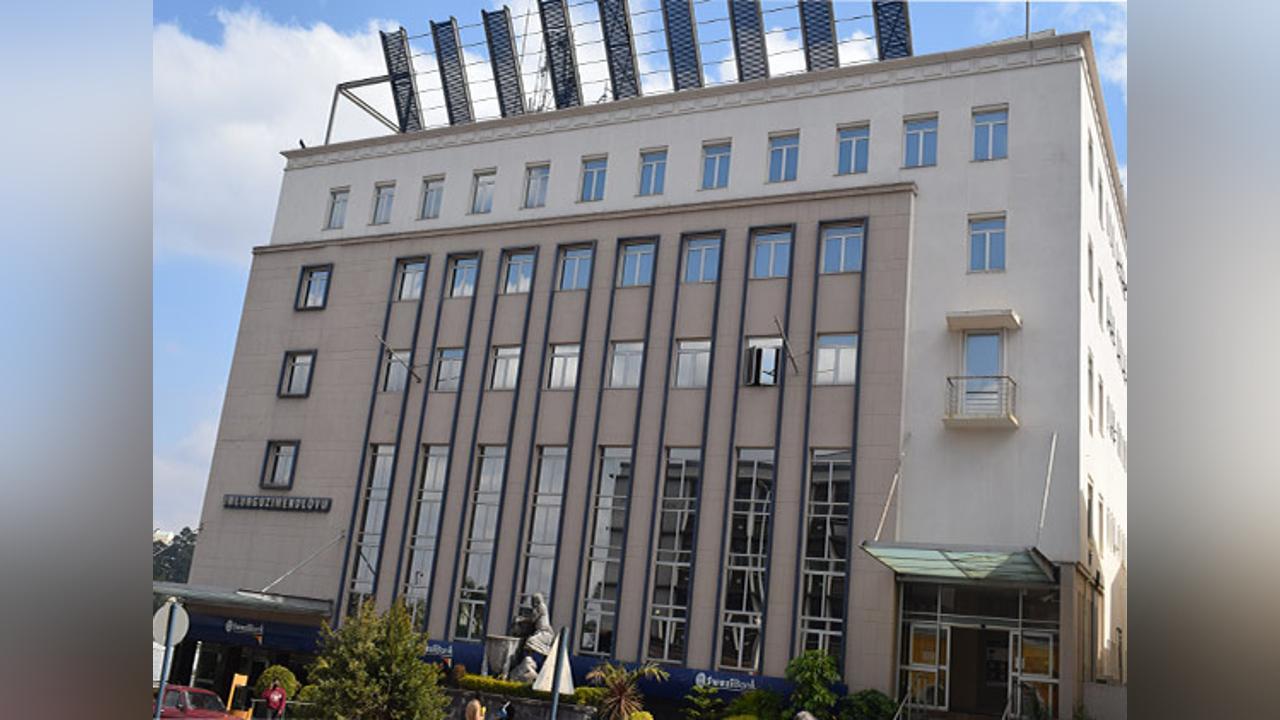Africa-Press – Eswatini. The Central Bank of Eswatini is concerned about the increasing number of pyramid or ponzi Schemes that have caused many Emaswati to lose their savings and pensions.
No investment can provide astronomical returns without legitimate economic activity. Consumers need to be extra vigilant before investing their money.
Pyramid schemes harm consumers and financial stability by discrediting legitimate financial institutions and laundering funds. This article educates and empowers readers to avoid such schemes.
What Is a Pyramid Scheme?
Pyramid schemes promise high returns on investment by recruiting others to join their programme.
These schemes are not based on real investment profits or actual sales of products or services to the public. Sometimes, the promoter may pretend to sell a product, but it’s only to disguise the pyramid structure.
The scheme is named after the hierarchical structure formed by its investors or recruits.
Ponzi schemes are closely related to pyramid schemes, as they both involve continuous recruiting. However, in a Ponzi scheme, the promoter usually does not have a product to sell and does not pay any commission to investors who recruit new members.
Instead, the promoter collects payments from a stream of people, promising them all the same high rate of return on a short-term investment. In a typical Ponzi scheme, there is no real investment opportunity, and the promoter simply uses the money from recruits to pay obligations owed to longer-standing members of the program. This is commonly known as, ‘robbing Peter to pay Paul’.
Licensing of financial services providers
Financial services providers (FSPs) in Eswatini need licenses from the Central Bank or FSRA to operate. This is to ensure only well-managed and reputable FSPs operate in the country. Licensing is the first regulatory step, filtering out fraudulent FSPs. FSPs must abide by regulations to minimise consumer loss.
Common signs of
Pyramid/ Ponzi Schemes
Pyramid/ Ponzi schemes share several common characteristics. Listed below are some of the red flags that members of the public should look at for:
n The promise of very high returns over a short time.
n The promoter claims to have invented/had ground-breaking ‘new technology, products’ or ‘special investment scheme’.
n Focus more on the recruitment of new people rather than the sale of a product or service.
n A statement that the company/ scheme does not have to be licensed in Eswatini as it is licensed in another jurisdiction.
n Investors are pressured into making quick decisions and may be advised to keep the investment a secret from financial sector regulators.
n The promoter uses technical jargon, and one encounters difficulty obtaining necessary documents or paperwork.
n The business model is complicated and hard to understand for a normal person in terms of how such schemes generate returns for investors.
n The promoter takes a defensive stance to question and has an unusual explanation of business/account activities.
n The overnight change in the promoter’s lifestyle and accumulation of assets, often indicates that s/he is spending the members’ investments for personal wealth accumulation and enrichment.
How to prevent being swindled by illegal schemes
n Always question unsolicited and extremely lucrative offers. No investment can be guaranteed to be risk-free. Only high returns can be achieved with high risks. One should take precautions with companies that assure a risk-free investment and a high return.
n Be extremely cautious of suspicious and unsolicited telephone calls, emails, social media adverts and other means of communication offering any form of investment, from a person/institution not licensed for offering investment services.
n Conduct in-depth due diligence research before investing. Ask questions whenever you need to. People often do not investigate before investing, so fraudsters take advantage of that.
n Make sure you understand the company and its products. Search their website, social media pages, reviews, etc. Try to obtain written copies of all available company information including audited financial statements.
n Be sceptical about any plan that offers commissions for recruiting new distributors, especially where there seems to be no underlying product or service of economic value.
n Diversify your assets and investments across multiple institutions.
n Watch out for schemes that delay fulfilling commitments while urging members to ‘keep the faith.’
n Pyramid schemes can’t fulfil obligations to most members. To survive, they need to retain and attract as many members as possible, using community and solidarity to denounce outsiders.
Conclusion
The Central Bank is working with law enforcement agencies to fight pyramid schemes. Regulators continually educate Emaswati to make sound investment decisions. But they cannot stop these schemes alone. Emaswati must not participate in illegal activities and report suspicious promoters and recruiters.
For any suspected illegal investment programme/ scheme activities, members of the public can contact-
n The Central Bank at Tel: 2408 2000 or e-mail [email protected]; or
nThe FSRA at Tel: 2406 8000 or e-mail [email protected]
n Royal Eswatini Police Services at 999 or 9999
All information received will be treated with the highest confidentiality and the urgency it deserves.
NB: Please note that all previously published articles can be found on the Central Bank of Eswatini website https://www.centralbank.org.sz and social media pages.
For More News And Analysis About Eswatini Follow Africa-Press







